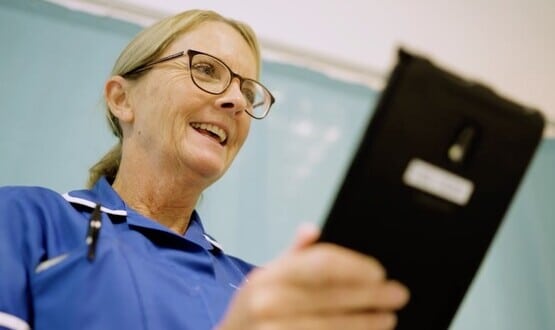Imprivata and Isosec deal called off amid concern it ‘could stifle innovation’
- 10 May 2021

Imprivata has abandoned its proposed acquisition of Isosec after concerns were raised it could “reduce choice and stifle innovation” in the NHS.
The Competition and Markets Authority (CMA) last month revealed it was investigating the merger due to concerns about competition. But today, May 10, the watchdog confirmed it would not refer the deal for further investigation “based on assurances received from Imprivata that the deal has been abandoned”.
Imprivata and Isosec both provide secure authentication management solutions to healthcare providers in England. The technologies can give staff protected access to sensitive patient data sourced from a central NHS IT system.
Following its initial investigation investigation, the CMA found that Imprivata and Isosec are “important rivals” and that part of the motivation for the takeover was the “removal of a competitive threat from the market”.
It also found evidence that competition between the two companies is expected to grow in the future with the introduction of new products. In addition, the merging companies’ customers, including the NHS, have limited other options in terms of suppliers.
The watchdog said in a statement it was “concerned that the merger could reduce choice and stifle innovation in authentication management solutions for accessing sensitive NHS data”.
“This would have an impact on both non-NHS and NHS healthcare providers across England and could potentially lead to taxpayers receiving poorer value for money in relation to these services”, the CMA found.
The CMA announced on April 29, 2021 that the proposed merger would be referred for a further in-depth investigation unless both parties offered “acceptable undertakings” to address the concerns.
Joel Bamford, CMA senior director of mergers, said at the time: “Just like consumers, the NHS relies on competition between suppliers to keep prices low and drive innovation.
“The evidence we’ve seen from NHS customers and the companies’ own documents shows that Imprivata and Isosec would compete increasingly strongly if it wasn’t for their proposed deal.
“Losing this competition would lead to a worse outcome for the NHS and other healthcare providers. Unless the companies address our concerns, we will refer the deal to a more in-depth review.”
Following the the CMA’s decision to refer the deal for further investigation Gus Malezis, chief executive of Imprivata, said: “Imprivata is disappointed in this outcome as we believe in the customer benefit of scaling our joint resources and technologies.
“However, we respect the authority of the CMA. Imprivata will continue to focus and invest in this area, to deliver value to its customers in this and related areas of digital identity, and the business will continue to operate as normal, as it has since the announcement of this proposed acquisition.”
Digital Health News has contacted Imprivata for further comment following the deal being called off.
Michael Latimer, chief executive of Isosec, said: “Whilst we were disappointed by the decision of the CMA, we respect their role and authority here. For Isosec, we will continue to focus on our exciting strong growth trajectory, innovation and market leadership with virtual smartcards and IAM for the NHS.
“We now have more than 130 NHS customers, of which more than 100 use virtual smartcards today.”
Imprivata is the biggest supplier of login solutions in the NHS, with the technology used in 70% of NHS trusts, according data provided to Digital Health last year by the company.
The global supplier provides a wealth of solutions including single sign-on; virtual desktop access; multifactor authentications; identity governance; and patient identification.
Isosec launched single sign-on technology purpose built for the NHS in January 2019, developed and hosted as part of the Isosec SecureHub service.
It includes tap and go functionality, session persistence and authentication to web and spine based applications, and works with other Isosec products and services including Identity Agent, Virtual Smartcard and Password Reset.
In January 2020 health secretary Matt Hancock pledged £40m for new technology to speed up the time it takes NHS staff to log into computer systems.
He claimed the investment will save thousands of hours in staff login time every day and ease administrative burdens on NHS staff.
Part of the programme would see the NHS work with IT system suppliers to standardise logins and provide multi-factor logins, such as fingerprint access, rather than password led log ins.




